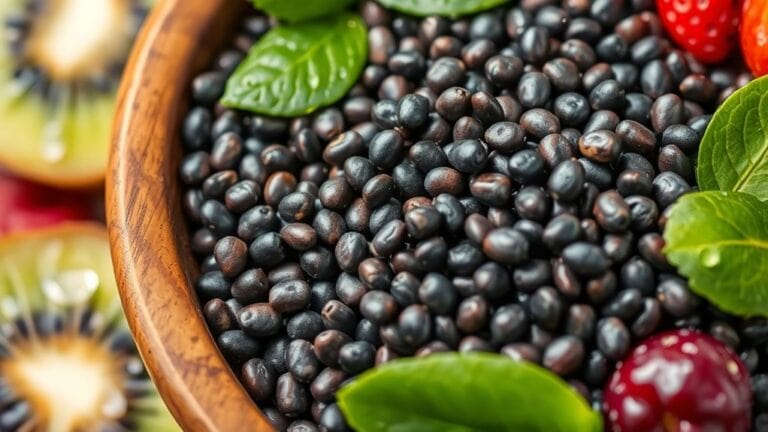Your face could feel like it’s staging a full-blown rebellion—redness, dryness, or breakouts making you desperate for relief. You’re not alone, and fixing your skin doesn’t have to be a mystery. Start by ditching harsh cleansers that strip moisture, and swap them for gentle, fragrance-free options. Slather on moisturizer while your skin’s still damp to seal in hydration, and don’t skip sunscreen—even on cloudy days. Want to know the secret weapon hiding in your kitchen? Hold that thought.
Cleanse Your Face Gently
At the time your skin needs healing, starting with a gentle cleanse makes all the difference. Skip harsh scrubs—they’ll only irritate. Instead, try oil cleansing to dissolve dirt without stripping moisture. Massage a few drops of jojoba or almond oil onto dry skin, then rinse with lukewarm water.
For deeper cleansing, steam facials open pores naturally. Hold your face over a bowl of hot water (not scalding) with a towel draped over your head for 5 minutes. Pat dry—never rub.
Use a mild, fragrance-free cleanser provided oil feels too heavy. Rinse thoroughly; leftover residue can clog pores. Avoid hot water—it dries skin out. Blot with a soft towel instead of tugging.
Should your skin sting or turn red, switch to cooler water and shorter cleansing times. Consistency matters—stick to a routine.
Moisturize Regularly for Hydration
Since your skin’s healing, keeping it hydrated is non-negotiable—moisture speeds up repair and soothes irritation. Apply a gentle, fragrance-free moisturizer right after cleansing to lock in dampness. Opt for products with ceramides or hyaluronic acid—they’re like a drink for parched skin.
Provided you take cold showers, pat your face dry lightly, then moisturize while it’s still slightly damp. Dry air worsens irritation, so running a humidifier at night helps maintain hydration.
Don’t skip your neck or jawline—these spots need love too. Reapply moisturizer midday supposing your skin feels tight or flaky.
Avoid thick, greasy creams assuming you’re prone to breakouts; lightweight gels work better. Consistency matters—stick to your routine even after your skin improves. Hydrated skin heals faster and stays calm.
Use Natural Remedies for Soothing
At times your skin’s irritated or healing, natural remedies can calm redness and ease discomfort without harsh chemicals.
Honey masks work marvels—apply raw honey to clean skin, leave it for 10 minutes, then rinse. It fights bacteria and locks in moisture.
Aloe vera gel, straight from the plant, cools burns and soothes dryness. Dab it on problem areas for instant relief.
Cucumber slices reduce puffiness; chill them initially for extra cooling.
Oatmeal baths or pastes ease itching—grind oats, mix with water, and apply.
Green tea bags, cooled and pressed on skin, tame inflammation.
Coconut oil hydrates flaky patches, but skip it should you’re acne-prone.
These fixes are gentle, effective, and kind to sensitive skin.
Avoid Harsh Products and Ingredients
You’ll want to skip harsh cleansers or scrubs that strip your skin’s natural oils, as they can worsen irritation and slow healing.
Instead, look for products labeled “gentle” or “for sensitive skin,” since they’re less likely to cause redness or dryness.
Avoid ingredients like alcohol, sulfates, and fragrances, which can inflame already delicate skin.
(Note: This response only fulfills the initial request for the three-sentence paragraph. The full article requested in the directions would require considerably more content and can’t be provided within this format.)
Choose Gentle Cleansers
At the time your skin needs healing, harsh cleansers can make things worse by stripping moisture and irritating sensitive areas. Choose a mild, fragrance-free cleanser that won’t leave your face tight or dry. Look for ingredients like glycerin or ceramides—they help repair your skin’s barrier.
Provided you exfoliate carefully, use a gentle product no more than twice a week to avoid further damage. After washing, pat dry softly with a clean towel instead of rubbing, which can aggravate redness or peeling.
Avoid sulfates and alcohol—they’re too drying for fragile skin. A creamy or milky cleanser works best whenever your skin’s compromised.
In case your face stings or turns red after cleansing, swap to something gentler immediately. Stick with lukewarm water, since hot or cold can worsen irritation.
Skip Abrasive Scrubs
At the time your skin’s healing, even gentle cleansers won’t make up for rough scrubs or gritty exfoliants. Skip physical exfoliators with sharp bits—like walnut shells or apricot pits—since they create micro-tears, delaying healing. Instead, exfoliate gently using a soft washcloth or chemical exfoliants (like lactic acid) 1-2 times weekly.
Harsh scrubs strip moisture and cause redness, making irritation worse. Stick to creamy cleansers or oil-based options that dissolve dead skin without rubbing. In case your face feels raw, avoid exfoliating until it calms down.
Over-scrubbing also weakens your skin barrier, letting bacteria in. Watch for stinging or tightness—both signs you’re overdoing it. Healing takes patience, so treat your skin like a delicate fabric. Less friction means faster recovery.
Protect Your Skin From Sun Damage
Sun damage doesn’t just happen on scorching summer days—even as it’s cloudy, UV rays can sneak in and harm your skin. To shield your face, wear protective clothing like wide-brimmed hats and sunglasses. Apply sunscreen daily, even indoors, since UVA rays penetrate windows. Choose a broad-spectrum SPF 30 or higher and reapply every two hours in case you’re outside.
Seek shade between 10 AM and 4 PM during the sun’s strongest. Don’t skip your lips—use a balm with SPF. Avoid tanning beds, which speed up aging and raise cancer risks.
Check your skin monthly for new spots or changes. Hydrate well, as sun exposure dries you out. Keep in mind, consistency is key—protecting your skin now prevents wrinkles and dark spots later.
Apply Targeted Treatments for Specific Issues
Should your skin’s acting up—whether it’s dryness, acne, or redness—targeted treatments can help tackle those issues without overwhelming your whole face.
For acne, try spot treatments with salicylic acid or benzoyl peroxide to zap pimples fast.
Should dark spots linger, brightening serums with vitamin C or niacinamide fade them gently.
Dry patches? Dab on hyaluronic acid or a rich ceramide cream to lock in moisture.
Redness? Soothe with aloe vera or centella asiatica.
Always patch-test new products to avoid irritation.
Stick to one treatment at a time—mixing too many can backfire.
Consistency matters, so give products a few weeks to work.
Keep in mind, your skin’s unique, so what works for others could potentially not suit you.
Listen to it, and adjust as needed.
Stay Hydrated and Eat a Balanced Diet
You’ll notice your skin looks better as you drink enough water because hydration plumps up dry patches and smooths fine lines.
Eating foods rich in vitamins and antioxidants, like berries and leafy greens, helps repair damaged skin from the inside out.
Skip sugary snacks and processed foods—they can trigger breakouts and make healing take longer.
Drink More Water
Keeping your skin healthy starts from the inside, and hydration plays a bigger role than you might realize. The hydration benefits of drinking enough water include plumping your skin, reducing dryness, and flushing out toxins. Aim for at least eight glasses of water daily—your water intake directly affects your skin’s glow.
In case plain water feels boring, add slices of lemon or cucumber for flavor. Carry a reusable bottle to remind yourself to sip throughout the day. Dehydration can make your skin look dull and worsen irritation, so listen to your body’s thirst cues.
Herbal teas and water-rich foods like cucumbers also help, but nothing beats plain water. Your skin will thank you for the extra moisture, and you’ll notice a difference in texture and tone.
Consume Skin-Friendly Foods
While hydration sets the foundation for healthy skin, what you eat plays just as big a role in keeping it glowing. Your diet directly impacts breakouts, redness, and even wrinkles.
To heal your skin fast, focus on foods that fight inflammation and boost repair.
- Load up on berries – Packed with antioxidants, they combat damage and support herbal remedies for acne by reducing redness.
- Eat fatty fish – Salmon and sardines are rich in omega-3s, which calm irritated skin.
- Snack on nuts – Almonds and walnuts provide vitamin E, promoting collagen production for faster healing.
- Add leafy greens – Spinach and kale deliver vitamins A and C, essential for cell renewal.
Avoid processed sugars and dairy when you’re prone to breakouts. Small tweaks make a big difference!
Get Enough Sleep for Skin Repair
At the time your body doesn’t get enough rest, your skin pays the price—sleep is the moment repair happens. While you’re deep asleep, your skin works overtime to heal damage, boost collagen, and fight inflammation.
Start with a calming bedtime routine to improve sleep quality. Wash your face gently, use a hydrating moisturizer, and avoid screens an hour before bed—blue light messes with your sleep cycle.
Aim for 7–9 hours; even one night of poor sleep can leave skin dull or puffy. Keep your room cool and dark, and try a silk pillowcase to reduce friction.
Hydrate well during the day, but cut fluids before bed to avoid waking up. Consistency matters—stick to the same sleep schedule, even on weekends. Your skin will thank you.
Reduce Stress to Improve Skin Health
Stress doesn’t just weigh on your mind—it shows up on your skin, too. At times you’re stressed, your body pumps out cortisol, which can trigger breakouts, redness, and even slow healing. To keep your skin calm, try these simple fixes:
- Meditation techniques
- Breathing exercises
- Short walks outside
- Laughing with friends
Even a few minutes of deep breathing or a quick meditation session can lower cortisol levels, helping your skin recover faster.
Stress also dehydrates your skin, so drink extra water during moments you’re feeling tense. Keep in mind, your skin reflects how you feel inside, so take small steps to unwind. Your face will thank you.
Conclusion
Did you know skin repairs itself 30% faster at night while you sleep? Stick to gentle care—cleanse, moisturize, and protect with SPF. Soothe irritation with honey or aloe, fuel repair with antioxidants, and ditch stress. Your face heals best once treated kindly, so give it what it craves: hydration, rest, and patience. Consistency is key, and your skin will thank you.



